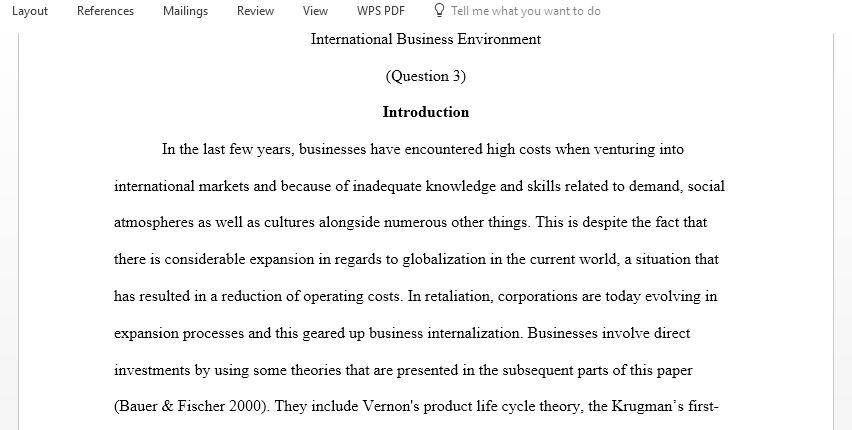Critically review and apply concepts, terminology & theoretical models associated with international business policies and strategies
This assessment covers the following learning outcomes from the module.
Knowledge:
1. Critically review and apply concepts, terminology & theoretical models associated with international business policies and strategies.
2. Demonstrate understanding of the political, socio-cultural, economic and technological factors that have been found to influence variations in international organisational business structures and leadership and management styles
3. Critically assess the relationship between national and organisational cultures
4. Relate the conceptual theories of ‘internationalisation’, innovation and competitive advantage to different industries and locations
In answering ONE of these questions, please pay particular attention to the assessment criteria Please also note that
(i) as much as possible your answers should draw on real world examples from the activities of international businesses and national economies
(ii) equal weighting should be assumed for two part questions.
Q3. Drawing on current examples from the activities of multinational enterprises, critically assess the extent to which the following theories provide an effective explanation of international trade and investment:
Vernon’s Product Life Cycle Theory
Krugman’s First Mover Advantage Theory; and
Dunning’s Ownership-Location-Internalisation (OLI) eclectic theory.
Answer preview for Critically review and apply concepts, terminology & theoretical models associated with international business policies and strategies
Access the full answer containing 2790 words by clicking the below purchase button

